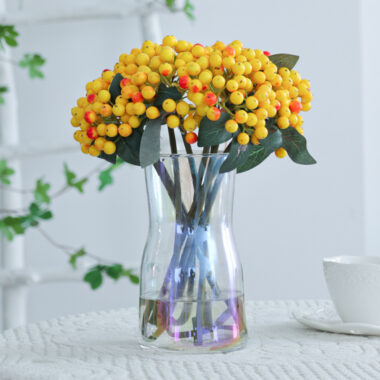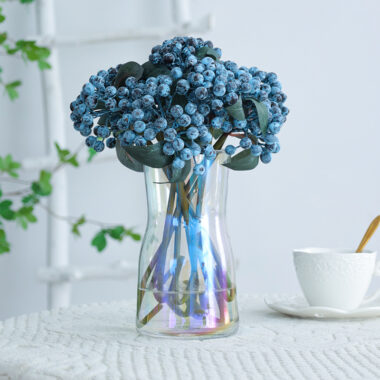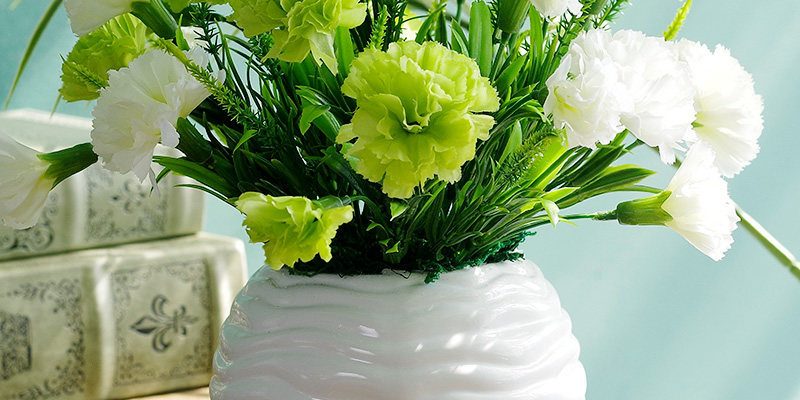🌸 Introduction
Wholesale artificial flowers have become a major product category in global trade. Retailers, event planners, and distributors rely on large-volume orders to supply weddings, hotels, home décor, and seasonal displays. But buying wholesale is not simply about getting a lower price. There are important considerations every buyer should evaluate to ensure quality, consistency, and long-term profitability.
This article explores the key factors global buyers must consider when sourcing wholesale artificial flowers. From understanding MOQ policies to working with reliable factories, the goal is to help you make informed decisions for your brand or business.
🏭 1. The Role of the Supplier and Factory
When purchasing wholesale, one of the first questions is whether you’re working with an artificial flower supplier or a direct factory. A factory has control over production, customization, and QC processes, while a trading company may only broker deals.
Factories are generally better for bulk orders because they can offer lower prices and consistent quality. They can also scale up production quickly to meet seasonal or urgent demand. On the other hand, suppliers with strong factory connections can provide easier communication, making them valuable for buyers who prefer one point of contact.
📦 2. Minimum Order Quantities (MOQ)
MOQ is one of the most important terms in wholesale. Each factory sets a baseline order size to ensure cost efficiency in production. For some buyers, high MOQs can be a challenge, especially for smaller businesses or new product launches.
A flexible partner will offer lower MOQs or allow mixed SKUs in one carton. This makes it possible for buyers to test products in the market before committing to larger volumes. Always clarify MOQ policies before negotiation to avoid surprises later.
🎨 3. Customization Opportunities at Wholesale Scale
Buying wholesale doesn’t mean giving up on personalization. Many artificial flower factories offer custom artificial flowers even for bulk orders. Options include Pantone-matched colors, varied stem lengths, eco-friendly fabrics, or branded packaging.
For example, a retail chain may request flowers packaged in sets with their own logo and barcode. An event company might order oversized blossoms tailored for stage decoration. When discussing wholesale, ask how customization affects pricing and lead times.
✅ 4. Quality Standards and Sample Access
Consistency is essential in wholesale because even small defects multiply in bulk orders. Quality control must be rigorous at every step of production. Buyers should request detailed QC reports or third-party inspection services.
Samples play a crucial role. Before placing a large order, always request samples of the exact product configuration you need. This allows you to confirm color accuracy, material quality, and packaging durability. Factories with professional sample rooms are usually more transparent and trustworthy.
🚢 5. Logistics and Export Considerations
Handling thousands of units requires careful logistics. A reliable supplier will provide multiple shipping options, including sea freight for cost efficiency and air freight for urgent orders.
Packaging is another vital factor. Artificial flowers must be carefully protected with bubble wrap, separators, or reinforced cartons to survive long journeys. Export documents such as invoices, packing lists, and certificates of origin must be accurate to prevent customs delays.
💰 6. Pricing Transparency and Hidden Costs
Wholesale pricing is not just about the unit price. Buyers need to factor in additional costs such as packaging, branding, logistics, and customs clearance. A trustworthy supplier or factory should provide transparent quotations that clearly separate each cost.
Avoid being tempted by the lowest price alone. Very cheap wholesale offers may indicate poor quality or weak QC processes, which can harm your reputation in the long run. Instead, balance affordability with reliability.
🤝 7. Building Long-Term Partnerships
Wholesale purchasing is not a one-time transaction; it’s about building a stable supply chain. Partnering with a reliable artificial flower manufacturer creates opportunities for long-term collaboration. Strong relationships lead to better credit terms, early access to new designs, and smoother communication.
Consider suppliers who show genuine interest in your market needs. A factory willing to adapt to your seasonal cycles or provide new catalog updates is more valuable than one who simply ships boxes.
🌍 8. Sustainability and Market Trends
An increasing number of buyers are asking about eco-friendly options. Some factories now use recycled fabrics or biodegradable packaging. Choosing sustainable wholesale artificial flowers not only helps the environment but also enhances your brand reputation with eco-conscious customers.
Trends such as seasonal flower assortments, mixed arrangements, and ready-to-display bouquets are also growing in popularity. Staying updated with these trends helps you order the right products for your market.
🌺 Conclusion
Buying wholesale artificial flowers is an opportunity to maximize profit while securing consistent supply. But success depends on choosing the right partner and asking the right questions. From MOQ policies and customization options to quality control and logistics, every detail matters when orders reach thousands of units.
The key is to balance price with quality and service. By working with a trusted artificial flower supplier or factory, you gain not only bulk products but also reliability, transparency, and long-term support. With the right wholesale strategy, artificial flowers can become a strong, scalable product line for your business, helping you bloom in a competitive global market.









